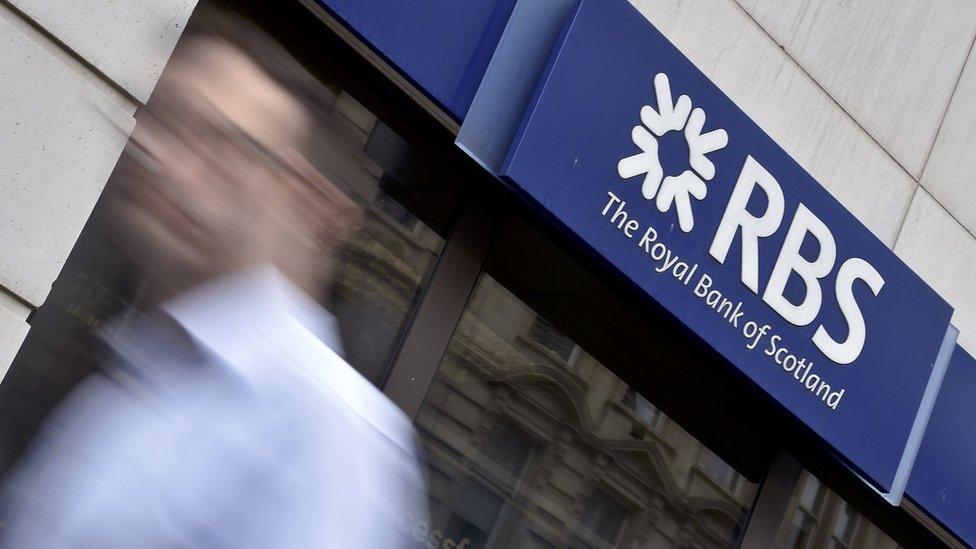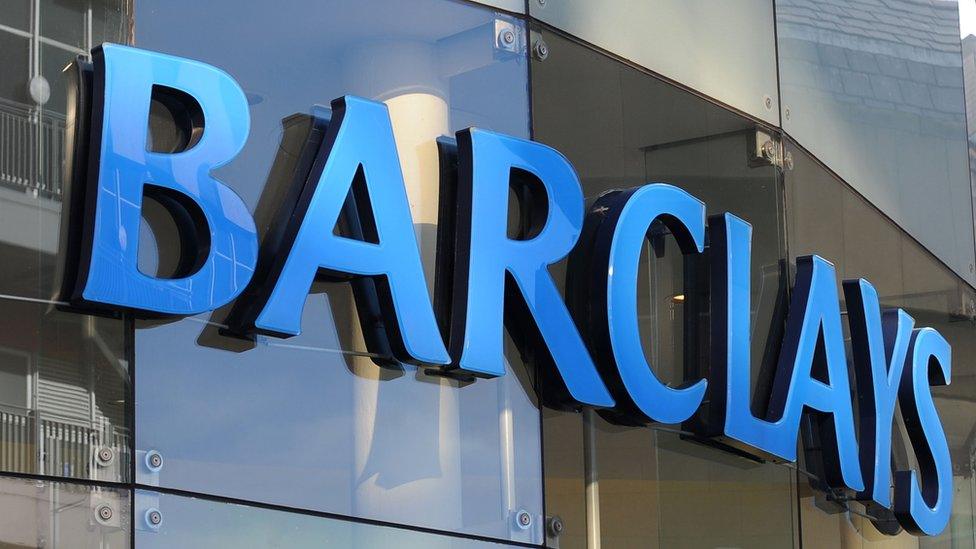RBS braces for a monster fine
- Published

"Bank faces big fine" is a story so worn out it would almost struggle to make the headlines after years of bad bank behaviour and big misconduct penalties.
But there are big fines, and BIG fines, and RBS is about to be hit by the biggest one in its troubled history.
RBS is one of the last big banks to settle with US authorities over its role in mis-selling risky mortgages, the scandal at the very heart of the great financial crisis of 2008/9.
According to RBS shareholders the BBC has spoken to, if the US Department of Justice (DoJ) slaps a fine around the $10bn mark, there will be drinks all round at RBS HQ and the share price will probably go up.
RBS itself is loath to offer an estimate as it's worried it may antagonise the very regulators with whom it is in tense and high stakes negotiations.
It has good reason to be cautious. Deutsche Bank tried to create a consensus around a figure of $5bn for its own settlement, only to see the Department of Justice get the hump and hit them with a bill for $14bn.
That riposte saw Deutsche Bank's share price tumble as a fine of that size was nearly 85% of the bank's market value at that time. The two sides eventually settled on a figure of $7.2bn.
RBS had a much bigger share than Deutsche of the sub-prime mortgage market and analysts estimates of the ultimate bill cluster around the low teens of billions. If it is much higher than that, some shareholders think RBS should refuse to settle and instead take the matter to court.

That was the approach taken by Barclays who balked at a figure (thought to be around $5bn) for their comparatively small role in the market, feeling that foreign banks were being disproportionately punished by US regulators compared to American banks. For example, Goldman Sachs was a much bigger player than Barclays in this market and settled for just over $5bn.
A Barclays insider told the BBC: "If the gap between what the DoJ was asking and what we thought reasonable could have been bridged, we would have done it but the gap was just too wide."
Barclays decided it would take its chances fighting the US regulator in court - an option no bank takes lightly. We won't know if that was the right call for many weeks or months.
That is the same dilemma facing RBS. If the DoJ comes back with a number in the high teens of billions - should it pay or fight?
'Legalised extortion'
Many shareholders agree that foreign banks are being unfairly punished and would back the bank if it refused to cough up.
One told the BBC: "Justice is not the guiding star for the Department of Justice. You might as well call it the Department of legalised extortion. The US authorities are shaking down the only investment banking competitors to the big US banks."
The Department of Justice declined to comment.
But remember, the DoJ is about to get a new boss appointed by a new President. His preferred choice is Republican Senator Jeff Sessions who has courted controversy for his hardline views on immigration but is fairly inexperienced in financial regulation.
So the gamble is this. Settle with this lot - who have shown themselves to be tough on European banks - or hope you get an easier ride with the new administration who may - or may not - look more favourably on UK institutions.

Whatever choice RBS takes, it will be a massive body blow to a bank already punch drunk with its various regulatory maulings. It was the only UK bank to fail the Bank of England's stress tests in November - in part because of the cloud of this imminent fine.
The Bank of England was satisfied that RBS had a credible plan to bolster its finances further but a particularly vicious upper cut from the US won't help.
Attempting normal
This is the last big impediment between RBS and its attempts to return to normality. Just today we saw Lloyds announce that the UK government was no longer its biggest shareholder.
RBS is still 73% owned by the government and is years away from that, but putting all the misconduct and litigation to one side, this is a bank capable of making a billion pounds a quarter in profit.
Many may find banks making profits unpalatable but the truth is economies function better with healthy banks that can get on with the job of being their bloodstream, delivering credit to where it is needed.
Getting this matter settled will be like having a tumor (size TBC) removed. The operation may well be painful, but only when it's done can RBS truly begin to heal.